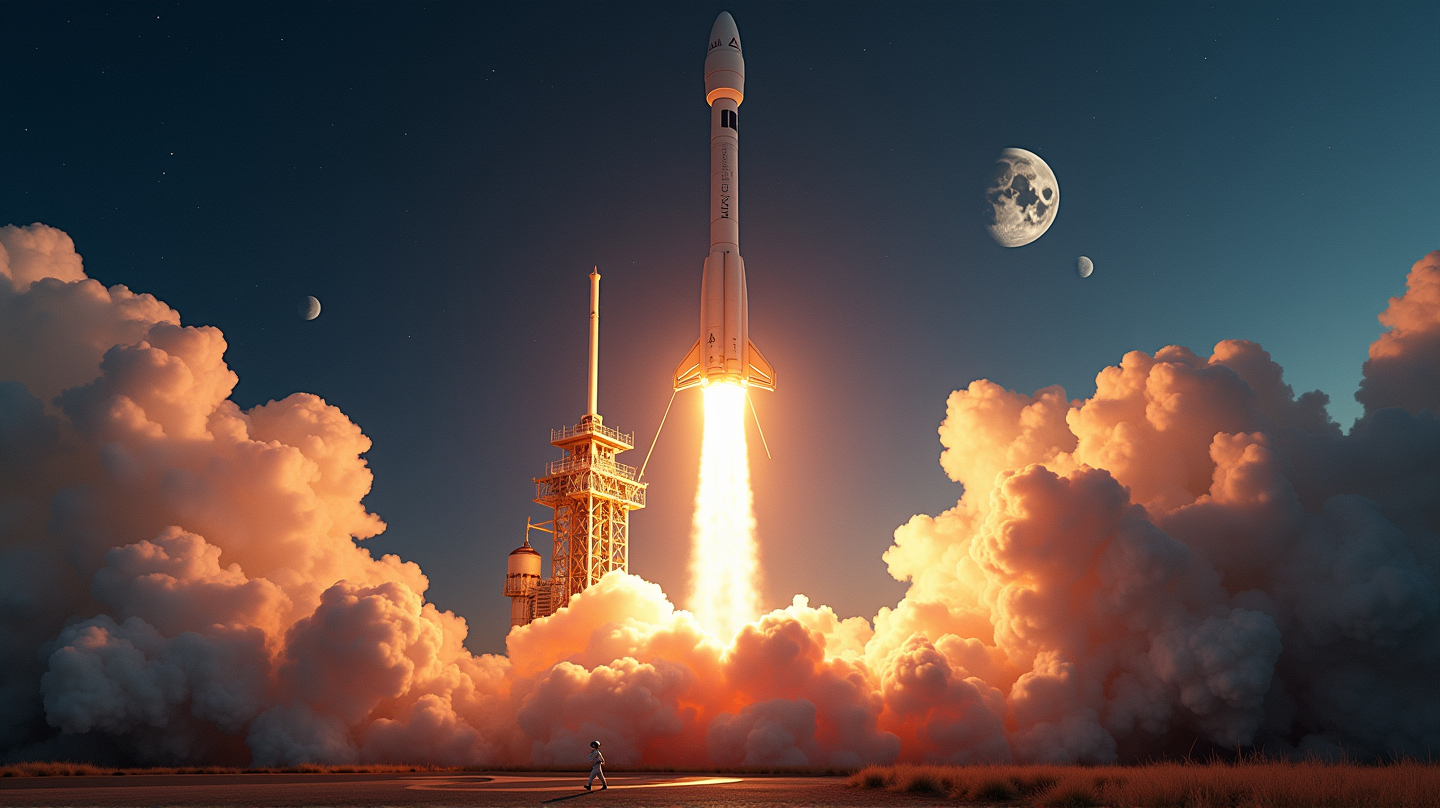Crew-11: A New Frontier for International Collaboration in Space
SpaceX and NASA's Crew-11 mission, featuring global astronauts, marks a leap in international cooperation and scientific discovery.

Space endeavors have always captured the imagination, but recent developments are not just about reaching the stars; they signify a triumph of human collaboration. The Crew-11 mission, a milestone for NASA and SpaceX, has not only launched astronauts but has also propelled international partnership into new heights. According to OpenTools, the mission underscores the power of uniting different minds towards a common goal.
Launch Overview
On August 1, 2025, under perfect skies, the Crew-11 mission took off from the Kennedy Space Center. This mission wasn’t just a technical feat; it was a harmonious blend of expertise from NASA, JAXA, and Roscosmos, presenting a literal journey beyond borders. Despite the initial weather setbacks, the spirit of resilience shone brightly, ensuring the successful lift-off aboard the Falcon 9 rocket, aiming for new scientific frontiers on the International Space Station (ISS).
Diverse Crew of Trailblazers
The Crew-11 is a constellation of elite astronauts: NASA’s Zena Cardman, poised to delve into astrobiological explorations; Mike Fincke, a seasoned space traveler; JAXA’s Kimiya Yui, armed with aeronautical expertise; and Roscosmos’ Oleg Platonov, symbolizing collaboration beyond geopolitical confines. This team isn’t just about bold discoveries; it’s a beacon of what we can achieve when we work together, regardless of earthly divisions.
Cutting-Edge Technology
The heart of Crew-11’s success lies in the advanced Dragon spacecraft, representing years of technological advancements. Its autonomous docking capability with the ISS showcases human ingenuity, making it a pivotal element in modern space travel. Reusability, key to reducing costs, empowers continuous exploration without the heavy financial burdens of yesteryears.
Scientific Quest and Health Research
Space isn’t just a final frontier; it’s a laboratory for groundbreaking research. Crew-11 is paving the way, focusing on human physiology in microgravity. These studies are crucial, given humanity’s aspirations to stretch out to the Moon, Mars, and beyond. By understanding how space affects us, we’re preparing for future missions, safeguarding astronauts’ health, and enriching our knowledge of life beyond Earth.
Symbol of Global Cooperation
The symbolic nature of Crew-11 extends beyond its scientific prowess. Amid global tensions, it stands as a testament to peaceful collaboration, highlighting space as a realm where politics gives way to collective progress. The mission resonates with historical significance, echoing a sentiment that perhaps our greatest discoveries aren’t just out there in space but within ourselves as we join hands globally.
Future Prospects: Beyond Horizons
Today, Crew-11, tomorrow, who knows where humanity might venture? This mission is more than orbiting Earth; it’s about laying a foundation for the future—one that envisions a connected universe. Dr. Jessica Long notes that the mission sets a precedent that extends hopes not just for space, but for Earth as a unified community working towards shared dreams.
In essence, the Crew-11 mission is more than a marvel of engineering and teamwork; it’s an inspiration, opening the door to boundless possibilities. As we gaze up, we’re reminded not only of the vast realms yet to explore but of our boundless ability to work together in this grand venture called space exploration.

